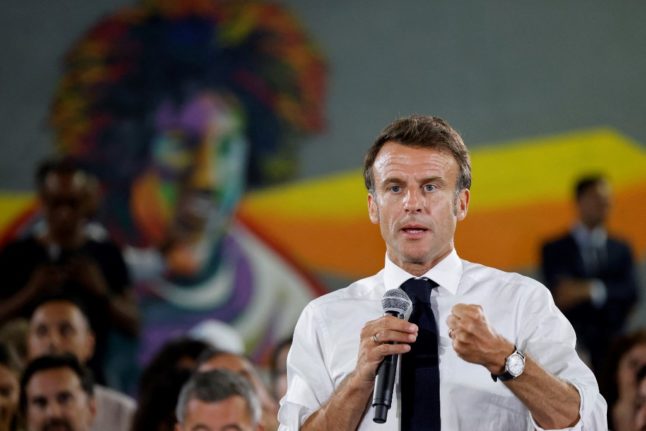While visiting the French city of Marseille, French president Emmanuel Macron announced several measures to close gaps in educational inequality, including extended opening times.
Starting with Marseille, the president said that collèges (for pupils aged 11 to 15) in priority areas (locations recognised by the government for having comparatively lower income levels) would stay open from 8am to 6pm, in an attempt to offer pupils a place to do their homework, or enjoy extracurricular activities from sports to culture.
Macron said that educational inequality is “created in the time when the child is sent home” – for example between pupils who have a calm space to do homework and those who don’t.
8h → 18h au collège dans les quartiers prioritaires de la ville, pour faire ses devoirs, du sport ou pratiquer une activité culturelle : c'est mieux lutter contre l'inégalité scolaire. pic.twitter.com/1gaqfW0PWp
— Emmanuel Macron (@EmmanuelMacron) June 26, 2023
The initiative will eventually be extended to all priority neighbourhoods in France, the president said, affecting collèges that are considered priority – also known as ‘REP’ or ‘REP+’.
Elementary schools – for children aged six to 11 – have after-school clubs known as périscolaire which stay open until 7pm and are widely used by parents as affordable childcare.
The president also said that, in priority districts in Marseille, maternelles (pre-school, children aged 3-6) would start to welcome children aged 2 and above. By 2027, the goal is that this will be extended across the French territory to other priority districts too.
Maternelles currently take children aged between three and six – in 2018 it was made compulsory, another act from the Macron government aimed at targeting educational inequality by ensuring that all children are at the same level once they start elementary school aged six.
He also mentioned plans to reduce class sizes for maternelles in priority areas.
Marseille – France’s second largest city which sits along the Mediterranean in the south of the country – has long struggled with poverty and inequality, particularly in the city’s northern districts.
READ MORE: Does the French city of Marseille deserve its ‘dangerous’ reputation?
During the 2023 visit, Macron also promised to double state funding to enhance public transport networks in the city, a follow-up to his 2021 plan called ‘Marseille en Grand’ – which intended to regenerate the city by providing more funding for infrastructure to better connect underserved neighbourhoods, fight the drug trade, and renovate dilapidated schools.
Despite these plans, there has been frustration amongst Marseille residents that the goals have not been brought to fruition. During a meeting with several residents of the city on Monday night, Macron was confronted by residents from northern parts of the city who told the president that “nothing has been done”, according to reporting by Le Monde.
In response, Macron acknowledged that though work has begun, it “has not gone fast enough”. So far, since the launch of the 2021 scheme, 28 school construction or renovation projects have been launched, with a budget of €1.5 billion.



 Please whitelist us to continue reading.
Please whitelist us to continue reading.
Member comments